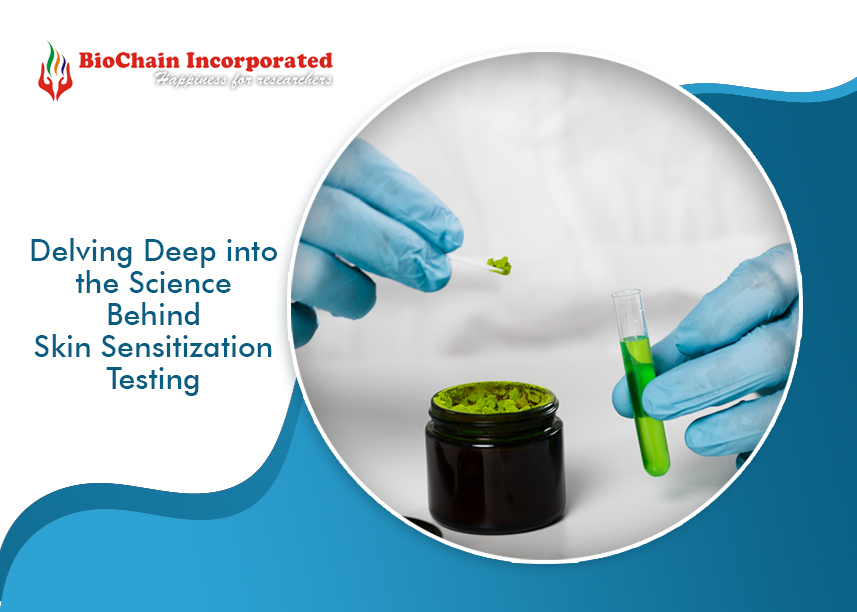Skin Sensitization Assay Kits: Understanding Testing Methods
Skin sensitization is a crucial aspect of product safety assessment, especially in the realm of cosmetics, pharmaceuticals, and chemical substances. Ensuring the safety of consumer products requires rigorous testing methods to identify potential allergens and irritants. In this blog, we will delve into the science behind skin sensitization testing, exploring various methods and the role of Skin Sensitization Assay kit suppliers, with a special spotlight on Biochain Incorporated.
Understanding Skin Sensitization:
Skin sensitization refers to the process by which an individual's immune system becomes hypersensitive to certain substances, leading to allergic reactions upon subsequent exposure. These reactions can range from mild irritation to severe dermatitis and even anaphylactic shock in extreme cases. Identifying potential sensitizers is crucial for product safety and regulatory compliance.
Testing Methods for Skin Sensitization:
-
In Vitro Methods:
-
Direct Peptide Reactivity Assay (DPRA): This method assesses the potential of a substance to react with proteins in the skin, mimicking allergic responses.
-
KeratinoSens™ Assay: Utilizing a luciferase reporter gene, this assay measures the activation of the Nrf2 pathway in keratinocytes, indicating skin sensitization potential.
-
h-CLAT Assay: The human Cell Line Activation Test (h-CLAT) evaluates the activation of dendritic cells upon exposure to test substances, providing insight into their sensitization potential.
-
In Silico Predictive Models:
-
Quantitative Structure-Activity Relationship (QSAR) Models: These computational models predict skin sensitization potential based on chemical structure and physicochemical properties, offering rapid and cost-effective screening.
-
Expert Systems: Incorporating expert knowledge and data from various sources, these systems provide predictive assessments of skin sensitization risk for diverse substances.
-
Animal-Based Methods:
-
Local Lymph Node Assay (LLNA): Widely used for regulatory purposes, LLNA assesses lymphocyte proliferation in response to test substances applied to the skin of mice, providing valuable data on sensitization potential.
Skin Sensitization Assay Kits and Suppliers:
Skin Sensitization Assay Kits are crucial in facilitating accurate and efficient testing procedures. Suppliers like Biochain Incorporated offer a comprehensive range of high-quality assay kits tailored to meet the diverse needs of researchers and regulatory agencies. With innovative technologies and reliable performance, these kits enable precise evaluation of skin sensitization potential, contributing to safer products and regulatory compliance.
Conclusion:
By employing a combination of in vitro, in silico, and animal-based methods, researchers can accurately evaluate the sensitization potential of substances, guiding informed decision-making in product development and regulatory submissions. With Skin Sensitization Assay Kits from trusted suppliers like Biochain Incorporated, researchers have access to reliable tools for advancing safety science and protecting public health.



.png)

.png)


.png)
.png)
.png)
.png)
.png)